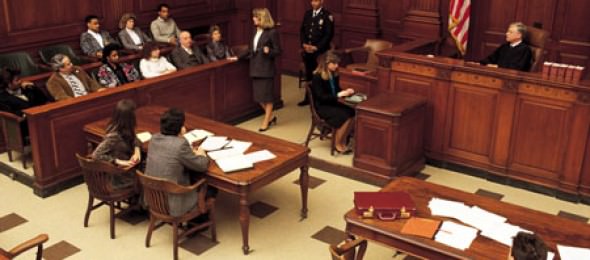The United States Court of Appeals for the Fifth Circuit found no reversible error with District Court’s judgment that affirmed an arbitration award in a disability discrimination case.
Background
In Sabrina Kay Taylor v. University of Phoenix/Apollo Group, No. 11-20681 (5th Cir. Sept. 7, 2012), Sabrina Taylor (“Taylor”) began working for the University of Phoenix (“University”) in January of 2005. Taylor was injured at an employee Christmas party later that year and took periods of leave under the Family Medical Leave Act (“FMLA”) for the next two years. On January 7, 2008, Taylor was not allowed on the premises when she reported to work. The University maintained that her physician never released her to return to work for a full eight-hour day. The University subsequently claimed that because Taylor could not work an eight-hour day and was unable to perform an essential function of her job, she voluntarily resigned effective March 18, 2008.
Meanwhile, in February of 2007, Taylor filed a disability discrimination complaint with the Texas Workforce Commission Civil Rights Division and the Equal Employment Opportunity Commission (“EEOC”). Taylor ultimately filed an employment discrimination suit in Texas state district court against the University. The University removed the suit to federal district court on the basis of diversity. The parties then agreed on a Joint Motion to Stay and Compel Binding Arbitration.
In the arbitration award issued in January 2011, the arbitrator found that although Taylor was disabled, the University did not discriminate against her because of her disability. Furthermore, Taylor failed to show that the University did not provide reasonable accommodation or that the University retaliated against her for filing the EEOC claim. Taylor’s claims of intentional infliction of emotional distress and breach of contract were also rejected. The district court subsequently denied motions to vacate the award and reinstate Taylor’s claim. The district court granted the University’s motion to confirm the award and entered final judgment. The district court later denied Taylor’s motion for reconsideration of the denial of the motion to vacate and a motion to stay the district court’s orders. The district court also imposed sanctions against Taylor in the amount of $1,000 to reimburse the University for costs and attorney’s fees associated with responding to Taylor’s motion to stay.
Fifth Circuit
Taylor contended that the award should have been vacated because it was procured by fraud, one of the grounds upon which a court may vacate an arbitration award under the Federal Arbitration Act (“FAA”). Taylor claimed that inconsistencies within several witnesses’ testimonies show that the award was procured by fraud. The United State Court of Appeals for the Fifth Circuit found that Taylor fell woefully short of meeting her burden of proof. Furthermore, Taylor did not explain any nexus between the inconsistent testimony and the award, a requirement for vacatur due to fraud.
Taylor also claimed that her case was hindered by the inability to finish questioning a witness because the witness was not compelled to appear in violation of the Texas Civil Practice and Remedies Code. The Court stated that parties to voluntary arbitration may not superimpose rigorous procedural limitation on the very process designed to avoid such limitations, and that Taylor also failed to show any nexus between the arbitrator’s failure to compel the University to produce the witness and the award.
Taylor also contended that the district court erred in denying her motion to reinstate her claim after the arbitration award was issued, and that although she submitted her claim to arbitration, she did not waive her right to be heard in a judicial forum. Citing the U.S. Supreme Court, the Court reasoned that once a party agrees to arbitrate, the party should be held to it unless Congress intended to preclude a waiver of judicial remedies for the statutory rights at issues. Taylor brought her disability discrimination claims under the Americans with Disabilities Act (“ADA”), and the Court has previously held that Congress did not intend to exclude the ADA from the scope of the FAA. Furthermore, because Taylor filed a Joint Motion to Stay and Compel Binding Arbitration, which the district court granted, the court concluded that she was precluded from showing that the district court erred in denying her motion to reinstate the suit.
Taylor also argued that the arbitration award demonstrated that the arbitrator engaged in evident partiality, another ground upon which a court may vacate an award under the FAA. She argued that the arbitrator erred in ruling that the ability to work an eight-hour work day was an essential function of the job. The Court rejected her contention because an award may not be set aside for a mere mistake of fact or law. The Court also found precedence that working an eight-hour work day can be an essential function of a job.
Finally, Taylor challenged the $1,000 sanction against her. However, Taylor did not file a notice of appeal from the sanctions order and the Court had no jurisdiction to address the imposition of the sanction. Therefore, the court dismissed the appeal of the sanctions. The court found no reversible error in the district court’s judgment and affirmed.














